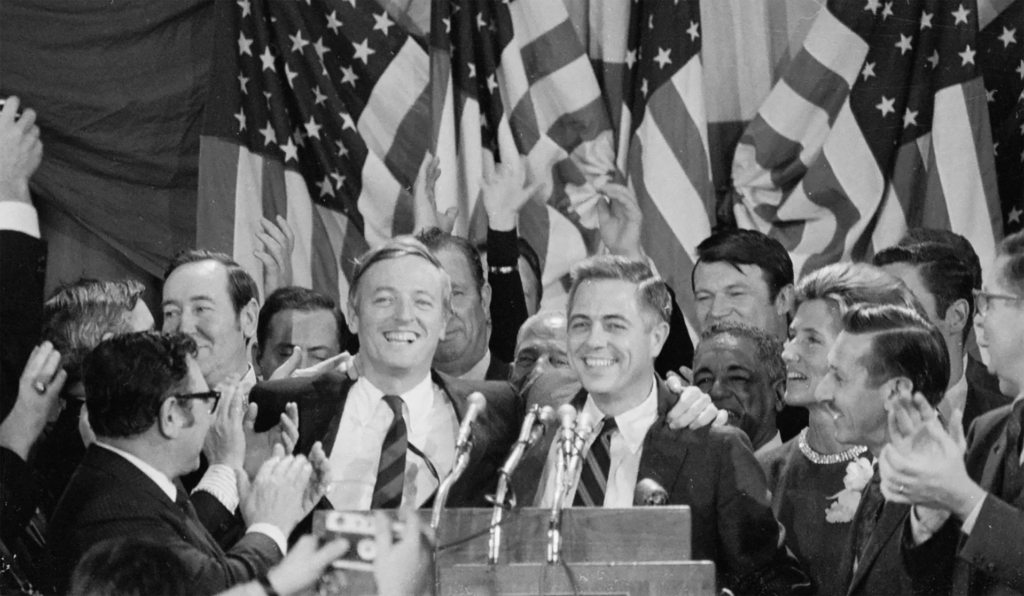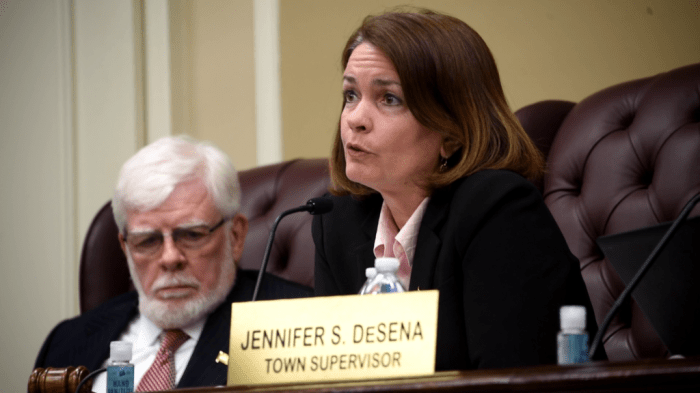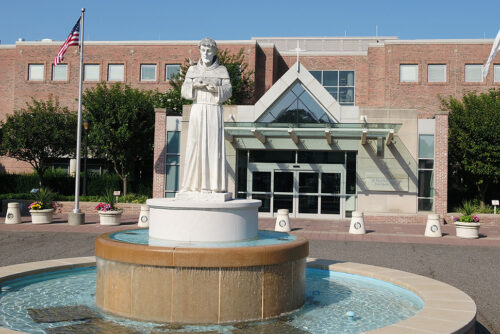Remembering James L. Buckley
James L. Buckley, the former junior Senator from New York, died recently at 100, ending a life that included a long career in public service.
Buckley, running on the Conservative Party ticket, served only one term in the Senate (1971 to 1977). Still, his career represented both a stunning upset in the 1970 race, one that paved the way for Alfonse D’Amato’s upset victory of longtime GOP Senator Jacob Javits in the 1980 primary, and his subsequent election to the U.S. Senate that year. D’Amato, whose candidacy was endorsed by the Conservative Party, was re-elected in both 1986 and 1992 before losing to Charles Schumer in the 1998 contest.
Buckley’s victory did not occur in a vacuum. It represented the fruition of years of hard work from the New York Conservative Party, one founded in 1962 as a reaction to then-Gov. Nelson Rockefeller’s reign and the latter’s refusal to assist Richard Nixon’s 1960 presidential bid in New York State.
The Conservative Party first received notice in 1965 when Buckley’s younger brother, William Jr., ran on that party’s ticket for mayor of New York City. Faced with a choice between John Lindsay and Abraham Beame, the younger Buckley brightened an otherwise humdrum race with colorful quips and an unabashed conservatism. Out of the run came Buckley’s finest book, The Unmaking Of A Mayor and a celebrity that inspired the creation of Firing Line which became television’s longest running talk show.
In 1968, James Buckley took the plunge, running also on the Conservative Party line, this time in a three-man Senate race between Jacob Javits, the incumbent Republican, and his Democratic challenger, Paul O’Dwyer. The always-popular Javits prevailed by a 50 to 33 percent margin over O’Dwyer, with Buckley scoring 17 percent.
Also in 1968, Robert F. Kennedy, New York’s junior Senator, met a tragic end, assassinated in Los Angeles while running for president. Rockefeller appointed Charles Godell, a Republican who continued Kennedy’s liberal voting record. In 1970, Buckley ran again, beating both Godell and the Democratic Party candidate, Richard Ottinger, winning 39 percent of the vote to 37 for Ottinger, with Goodell trailing in third. Buckley won 37 counties, including a majority in Staten Island and incredibly enough, pluralities in Queens, Nassau, Suffolk, and Westchester counties.
In the Senate, the man often aligned himself with Sen. Jesse Helms (R—NC), that body’s most conservative solon. He also was a conservationist, working on the Committee on the Environment and Public Works. He also proposed a Human Rights Amendment to the U.S. Constitution, while opposing school busing, affirmative action and President Nixon’s policy of gradual withdrawal from Vietnam.
Six years later, Buckley, running in the shadow of Watergate, lost his re-election bid to Daniel Patrick Moynihan. The election wasn’t close, but that matchup almost didn’t happen. In the primary, Moynihan defeated Rep. Bella Abzug (D—NY) by a mere 1,000 votes. Had the more liberal Abzug won, Buckley’s chances in the fall campaign would have increased markedly. The New York Times played a role. That paper’s publisher, Arthur Ochs Sulzberger Sr., insisted that John B. Oakes, his editorial page editor, endorse Moynihan, a very rare move by a paper bound by “church and state” separation on such matters.
After losing to Moynihan, Buckley relocated to Connecticut, where he lost a 1980 Senate contest to Christopher Dodd. In 1984, President Reagan appointed him as an Undersecretary of State for security assistance, as President of Radio Free Europe/Radio Liberty and finally, to fill a seat on the United States Court of Appeals for the District of Columbia Circuit.
The Buckley story will always be the 1970 Senate race. The state, then and now, was liberal. In the 1960s and ‘70s, however, the metropolitan area was in constant upheaval: Rising crime, white flight, school busing orders, urban renewal.
That era also saw a conservative undertow from the five boroughs and Long Island, expressed most clearly in Dick Young’s sports column, which dominated the then-popular New York Daily News.
Buckley’s victory represented a revolt by the “unmeltable ethnics.” His coalition included working-class Irish in Woodside and Park Slope, Italians in Bensonhurst and Throggs Neck, conservative Jews in Borough Park and Canarsie, Greeks in Astoria, Poles in Maspeth and Greenpoint. Buckley’s death was an occasion for much reflection. On National Review Online, Jack Butler lamented “the decline of American politics, in one senate seat,” adding: “Buckley was defeated in 1976 by Daniel Patrick Moynihan, a respected public servant in both Democratic and Republican presidential administrations. A thoughtful man whose writings could challenge left-wing orthodoxy, Moynihan nonetheless often voted party line. But as far as Democrats go, we could get far, far worse than he.
“In 2000, Democrat Hillary Clinton…won the seat. She had never lived in New York before deciding to run for Senate there. Nor had she been involved in politics in the state meaningfully. She left the Senate in 2009 to become President Obama’s Secretary of State, a position that transitioned seamlessly…to her run for president of the United States.
“After Hillary came Kirsten Gillibrand. Appointed to the position in 2009 by New York Governor David Paterson, she won it in her own right in a special election in 2010, then in regular elections in 2012 and 2018…Gillibrand abandoned any pretense of moderation in the Senate, claiming in a 2018 interview that she was ‘embarrassed’ by her prior defense of gun rights and ‘ashamed’ of her previous dissents from the left-wing line on immigration. During the Trump years, she became exhibitionist about her views and her opposition to Republicans, especially to Trump himself. It was an obvious prelude to a 2020 presidential run. That run ended in failure about five months after it began. She had failed to gain any real traction, despite her enthusiastic support for ‘gay rights.’
“So, there you have it: From Buckley to Gillibrand, a demonstration of the downward trajectory of our politics, illustrative of at least some of the trends that have fed into that decline,” Butler concluded. “But don’t worry: Things could always get worse.”
How did it happen? New York is no longer a contested state, as it was in the 1970s and ‘80s. The New York of 1970 has, for all purposes, long perished. The Archie Bunker neighborhoods in Brooklyn and Queens are now populated heavily by immigrants from Asia and Latin America, whose votes swing Democratic. As important is the shift left by suburban women voters, due to the abortion issue. The flight from the city to suburbia has been replaced by more millions, many of them Republicans, leaving the state altogether. To New York Republicans, plus the conservative punditry, these changes don’t register. Buckley spent his final decades living quietly in Connecticut. Whether he knew that his New York of angry outer borough ethnics had disappeared remains unknown.































